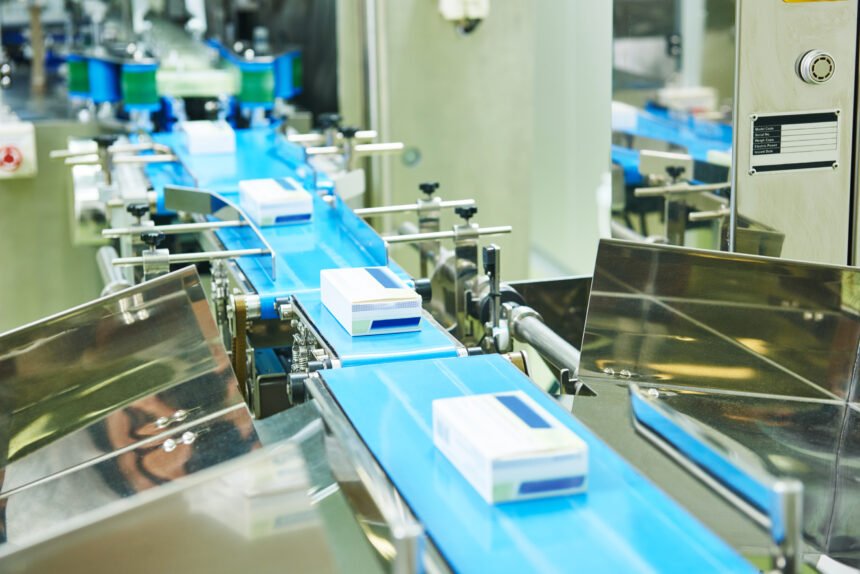Global patients and healthcare providers spent nearly $1.5 trillion on pharmaceuticals in 2022 alone. The industry is clearly very lucrative, but it still struggles with certain challenges that it needs to overcome.
We have talked about some of the major changes that pharmaceutical companies need to make if they want to remain competitive in the coming years. One of the biggest things that we talked about is transportation in the drug sector. However, there are other key considerations as well, such as the importance of packaging.
The pharmaceutical industry is seeing a huge transformative shift with the implementation of smart packaging technologies. These technologies offered by pharma packaging companies like Gilpack have a lot to offer more than just the traditional packaging. It incorporates intelligence properties that enhance patient compliance and promote the overall efficacy of drugs.
In this article, we discuss the significance of smart packaging in pharmaceuticals in enhancing patient compliance as well as improving drug efficacy. Let’s get started!
1. Real-time medication monitoring
Smart packaging solutions utilize technologies such as Radio-Frequency Identification [RFID], Near Field Communication [NFC], and Quick Response [QR] codes to provide real-time monitoring of medication usage. This is one of the logistics issues the industry faces as this study highlighted.
Thanks to these, patients can receive timely reminders through connected devices, ensuring adherence to prescribed dosage schedules. This instant feedback mechanism minimizes the risk of missed doses and allows patients to adhere to their medication schedules consistently. Of course, real-time monitoring also offers insightful data to healthcare providers, allowing them to intervene speedily if they detect any deviations from the treatment plan.
2. Enhancing patient engagement
Smart packaging promotes interactive patient engagement by integrating wearable devices and smartphone apps. Patients receive personalized dosage schedules, educational materials, and thorough medication information. Smart packaging’s interactive features foster a dynamic engagement between patients and their treatment schedules. Patients may take an active role in managing their health with wearables or apps, which promotes greater accountability, awareness, and a more collaborative approach to healthcare.
3. Personalized dosage and treatment plans
Another incredible way that technologies in pharma bottles enhance patient compliance and drug efficacy is that it allows for tailoring dosage schedules and treatment plans based on individual patient responses. These dosing schedules can be integrated to account for variations in how patients respond to their medications. This personalization ensures patients receive effective and optimized treatment, resulting in better outcomes. The ability to modify treatment plans depending on real-time data represents a significant advancement in pharmaceutical care.
4. Ensuring medication authentication and safety
Smart packaging technologies address concerns associated with counterfeit drugs by incorporating safety features like authentication codes and tamper-evident seals. Patients can verify the authenticity of medications via digital platforms, ensuring they receive genuine pharmaceutical products. This enhances patient safety and safeguards the integrity of the healthcare supply chain. Smart packaging generally promotes a safer and more secure pharmaceutical environment by establishing trust when it comes to the authenticity of medications. Plastic pharmaceutical bottles can also mitigate safety concerns. Read about the benefits of plastic materials over glass.
5. Improved disease management
Smart packaging in pharmaceuticals also plays a crucial role in optimizing the outcome of treatments by enhancing disease management. Because of the consistent medication adherence brought by smart packaging, patients can experience better control over their health conditions. Of course, this results in minimized disease progression, reduced symptoms, and, most importantly, improved overall well-being. The constant monitoring and feedback sphere of smart packaging leads to more effective disease management strategies.
6. Sustaining precision medicine approaches
The implementation of smart packaging supports precision medicine approaches, where treatments are typically tailored to individual patients’ needs based on their unique features. Generally, real-time data on medication usage allows healthcare providers to tailor their treatment plans, ensuring that interventions are correctly adjusted to the patient’s needs. Of course, this tailored approach improves the effectiveness of pharmaceutical interventions, especially in areas where accuracy is crucial. This is one of the things that pharmaceutical companies can outsource.
Final thoughts
Smart packaging in pharmaceuticals is an innovative change in medication management that significantly improves drug efficacy and patient compliance. Smart packaging is changing the face of pharmaceutical care with its real-time monitoring, interactive patient engagement, safety features, personalized treatment plans, and contributions to disease management. Smart package integration will definitely become a common practice as these technologies advance, providing patients and healthcare professionals with a more personalized, efficient, and connected approach to medication management and treatment.








